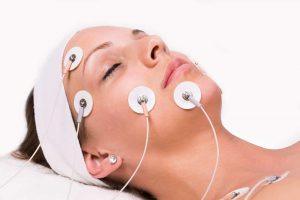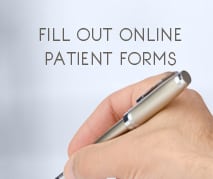 Perhaps you know somebody who has participated in a sleep study. Sleep studies have become very common due to the fact that an estimated 18 million Americans suffer from sleep apnea, and as many as 80 percent of cases go undiagnosed. Today your Livonia, MI dentist, Dr. James Stewart begins a three part series on sleep studies.
Perhaps you know somebody who has participated in a sleep study. Sleep studies have become very common due to the fact that an estimated 18 million Americans suffer from sleep apnea, and as many as 80 percent of cases go undiagnosed. Today your Livonia, MI dentist, Dr. James Stewart begins a three part series on sleep studies.
What Exactly Is A Sleep Study?
Sleep studies are overnight studies that monitor you while you sleep. They are meant to determine why you are not sleeping well, if you have a sleep disorder, which one, and how severe it is. The nature of sleep disorders are such that most people aren’t aware they have one because symptoms appear during sleep. However, there are daytime symptoms which include excessive tiredness, irritability, difficulty concentrating, sleepiness while driving, forgetfulness, and mood swings. Left untreated, sleep disorders can increase your risk for hypertension, heart disease, and stroke.
Sleep studies are painless, and are done in a comfortable sleeping environment that may resemble a hotel room. Technicians and nurses prepare you for the study and monitor you while you sleep. There are various sleep study tests including the polysomnogram (PSG), the multiple sleep latency test (MSLT), and the maintenance of wakefulness test (MWT). Today, Dr. Stewart discusses the polysomnogram.
During a Polysomnogram
During a polysomnogram electrodes are placed on your scalp, face, chest, limbs, and one finger. Electrodes are tiny sensors attached to wires which transmit the data to a computer in another room. The computer records your blood pressure, brain activity, eye movements, heart rhythm and rate, and the amount of oxygen in your blood. In addition to the electrodes, elastic belts are placed around your stomach and chest to measure the movement, strength, and duration of inhaled and exhaled breaths.
Diagnosis
If the technicians notice that you are exhibiting signs of sleep apnea they may perform a “split-night” sleep study. The first half of the night is spent monitoring your symptoms and recording your sleep patterns, and during the second half you will be fitted with a continuous positive airway pressure (CPAP) mask. The CPAP fits over your nose and mouth while a machine blows air through the mask to keep your airway open during sleep.
About Dr. Stewart
James R. Stewart, Jr, DDS, PC and our compassionate staff proudly serve patients of all ages from Livonia, Farmington Hills, Plymouth, Northville, Dearborn Heights, Garden City, and all surrounding communities. If you think you or a loved one is dealing with a sleep disorder, call our office today at (734) 425-4400, to schedule an appointment. At Dental sleep Medicine of Michigan, we are committed to forming trusting relationships with our patients so we can work together to achieve sound treatment and a future full of restful nights.






